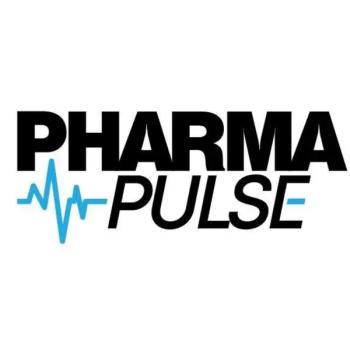
- Pharmaceutical Commerce - August 2024
- Volume 19
- Issue 4
Enhancing Patient Access and Support Through Technology: A Comprehensive Assessment
Why the integration of AI-enabled solutions has the potential to boost patient support and engagement across numerous patient care settings.
Specialty pharmacies and other patient service providers that pioneered the specialty pharmaceutical product market initially focused on extraordinary service and patient support, curating capabilities for specialty drug therapies. This included supporting the unique requirements of specialty drug therapies and the needs of their patients—prescription delivery has provided express services, such as for cold chain, and patients were called monthly to start the refill process. Pharmacists, nurses, social workers, and other healthcare professionals (HCPs) were available to support patients’ clinical needs. These entities had reimbursement experts who could navigate complicated insurance coverage and were adept at finding patient assistance support. The capabilities of the specialty product service providers grew in parallel with the development of new, complex therapies that required those capabilities.
Specialty pharmacies and other patient service provider services, like the drug therapies they support, continue to evolve. In today’s healthcare landscape, specialty pharmacies, manufacturers, and other stakeholders are increasingly leveraging technology—including artificial intelligence (AI)-enabled innovations—to enhance patient and caregiver support, particularly for patients on specialty pharmaceutical drugs. This segment of patients often requires intensive monitoring, personalized support, and adherence to complex treatment regimens. AI-enabled technology offers unique opportunities to meet these needs effectively by providing personalized care, predictive analytics, and real-time interventions, thereby improving medication adherence and enhancing overall patient outcomes.
Evolution of technology-enabled engagement tools
The development of technology-enabled patient engagement solutions has revolutionized the management of specialty drug therapies. These solutions encompass a variety of digital tools and platforms tailored to support patients with complex medical conditions and treatments. For instance, mobile applications, remote monitoring devices, and virtual consultations have become integral in delivering personalized care and improving treatment adherence among patients on specialty drugs.
Telehealth services, in particular, have played a pivotal role in ensuring continuous care delivery, enabling patients to consult HCPs remotely and receive timely support and education. The COVID-19 pandemic further accelerated the adoption of telehealth, highlighting its efficacy in maintaining patient engagement and adherence to treatment protocols.
AI-enabled digital patient engagement
The integration of AI in digital patient engagement is transforming how specialty pharmacies and other patient services providers interact with and support patients. As healthcare continues to embrace technological advancements, AI-enabled solutions are emerging as powerful tools to enhance patient-reported outcome measures (PROMs) and overall patient engagement. Examples include:
- Telephonic interviews. While traditional telephonic interviews offer personalized patient interaction, AI can augment this process by automating initial patient outreach and follow-ups. AI-driven voice recognition systems can handle routine queries, schedule calls and deliveries, and collect preliminary data, reserving human intervention for more complex issues. This hybrid approach can optimize resources and ensure consistent patient engagement.
- Text, email, chat, and screenshare. AI chatbots and natural language processing algorithms are revolutionizing text-based communication. These tools can provide real-time responses to patient inquiries, deliver medication reminders, and collect PROMs through automated surveys. AI can analyze patient responses to identify patterns and predict potential issues, enabling proactive interventions. Email communication can be enhanced with AI by personalizing content and optimizing delivery times to improve engagement rates.
- Audio (Alexa, Siri, etc.).Voice-activated AI assistants such as Alexa and Siri offer hands-free interaction, making healthcare more accessible. These devices can be programmed to remind patients to take their medications, schedule follow-up appointments, and provide health information. With advancements in voice recognition technology, AI can offer personalized support and collect PROMs through conversational interfaces, making the process seamless for patients.
- Video. Telehealth has gained significant traction, and AI can further enhance video consultations. AI algorithms can analyze video interactions to provide real-time feedback to patient service providers, ensuring that patient concerns are adequately addressed. Additionally, AI can transcribe and summarize consultations, reducing administrative burden and improving the accuracy of patient records. This level of engagement can significantly improve patient satisfaction and health outcomes.
- Digital monitoring devices. Wearable devices and remote monitoring tools are invaluable in chronic disease management. AI can process the vast amounts of data generated by these devices, offering insights into patient health trends and identifying anomalies that may require intervention. By continuously monitoring patients, AI can provide real-time feedback and support, reducing hospital readmissions and improving overall health outcomes.
- Gamification. By incorporating game-like elements into health management apps, AI can motivate patients to adhere to their treatment plans. AI algorithms can personalize the experience, adjusting the difficulty and rewards based on patient behavior and preferences. This approach can make managing chronic conditions more engaging and less burdensome.
The future of AI-enabled patient engagement in patient support services is promising. As AI technology continues to evolve, we can expect even more sophisticated and personalized engagement solutions. Predictive analytics will play a crucial role, allowing HCPs to anticipate patient needs and tailor interventions accordingly. Integration with electronic health records (EHRs) will become more seamless, ensuring that all patient interactions are informed by comprehensive health data.
Over the next several years, AI-driven patient engagement is likely to become more ubiquitous, with widespread adoption across healthcare settings. The combination of AI with advanced digital tools will not only improve patient experiences but also enhance clinical outcomes, making healthcare more efficient and effective.
Clinical decision support and patient engagement
Technology can enhance those two elements through comprehensive patient assessments, benefits workups, and appropriate drug selection. Real-time PRO data availability and pharmacist involvement in data collection improve clinical decisions and patient outcomes.
Leveraging tech for patient engagement and PRO data
Patient engagement and the collection of PROs data are pivotal in modern healthcare. The Academy of Managed Care Pharmacy (AMCP) has highlighted the need to expand PRO data collection. Evolving technology and interoperability support more effective collection of validated PRO data.
Optimizing workflows for PRO data collection
Structuring workflows to collect PRO data at clinically relevant time points is crucial. This approach ensures that the data collected is meaningful and can be used to make informed clinical decisions. To support this, EHR and other longitudinal patient management systems may require modifications to facilitate PRO data collection and sharing. Ideally, PRO data should be available to the patient’s healthcare team in real time, providing a comprehensive view of health status.
Enhancing EHR systems and interoperability
For effective PRO data collection, system interoperability is essential. This ensures that data remains portable if patients change payers or care providers. Participants in the AMCP forum recommended leveraging pharmacists and other healthcare stakeholders to facilitate PRO data collection. Specifically, pharmacists—who are often involved in direct patient care—can integrate PRO questions into their workflow processes and enter the data into EHR systems. Community pharmacists, specialty pharmacists, and health-system pharmacists are all well-positioned to play significant roles in this process. For example, community pharmacists involved in drug therapy management, specialty pharmacists conducting disease activity assessments, and health-system pharmacists with access to shared EHR systems can all contribute to comprehensive PRO data collection.
EHR systems should be designed to gather appropriate data and ensure it is accessible to the relevant individuals to support informed decision-making. This involves integrating clinical decision support tools that can enhance various aspects of patient care.
Considerations in evaluating tech-enabled engagement
Pharmacies and patient service providers are evolving digital patient engagement capabilities, and future expectations will differ significantly from today. Important considerations include:
- Identifying the patient engagement issue. Understanding challenges faced by patients on specialty drugs, such as complex regimens and medication adherence.
- People assessment. Building a multidisciplinary team with clinical expertise and technological proficiency. Engaging patients and collaborating with HCPs ensures seamless tech integration.
- Process assessment. Aligning processes with patient needs and organizational goals. Mapping treatment pathways and personalizing digital interventions are crucial.
- Technology landscape assessment. Assessing technological infrastructure, data security, EHR integration, and software development processes. Deciding between buying, partnering, or building solutions is key.
- Auditing and continuous improvement. Monitoring key performance indicators (KPIs), collecting feedback, and refining digital tools and strategies.
- KPIs and return on investment. Defining KPIs and conducting ROI analysis to measure success and value of technology-enabled solutions.
Technology-enabled patient engagement tools have reshaped care delivery for patients on specialty drugs, offering personalized support and improving adherence. By continuously optimizing these solutions, organizations can drive meaningful improvements in patient satisfaction, treatment adherence, and healthcare efficiency.
About the Authors
Cheryl Allen, BS Pharm, MBA, and Jon Hamrick, MBA, are both founding partners with Curatio Scientia Advisors. Allen is also a member of Pharmaceutical Commerce’s Editorial Advisory Board.
Articles in this issue
over 1 year ago
Pharmaceutical Commerce - August 2024 Issue (PDF)over 1 year ago
Taking Inventoryover 1 year ago
A Journey of the Mindover 1 year ago
Pharmacy Deserts are Becoming a National Problemover 1 year ago
An Examination of Big Pharma Inventoriesover 1 year ago
US Drug Wholesaling 2024: Staying the Courseover 1 year ago
Biotech’s Achilles’ Heelover 1 year ago
Looking Ahead to Medicare Reforms Coming in 2025Newsletter
Stay ahead in the life sciences industry with Pharmaceutical Commerce, the latest news, trends, and strategies in drug distribution, commercialization, and market access.




